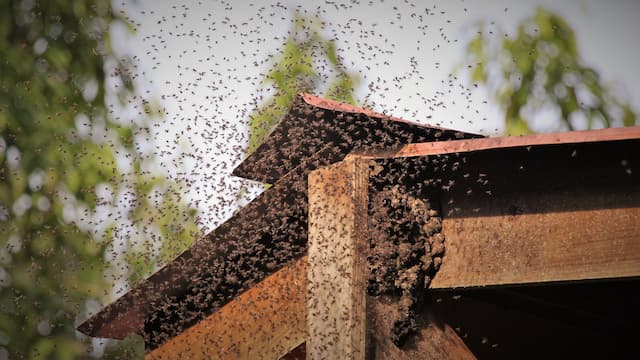Wasp stings often cause pain, heat, and swelling at the site of the sting for a short time. These responses are usually mild and go away in a few hours to a few days, even though they are unpleasant. However, a wasp sting can cause a serious allergic reaction in some people called anaphylaxis, which is a medical emergency that can kill them. This piece will talk about the hidden risks of being allergic to wasp stings and what you should know about them.
Learning About How People Who Are Allergic React to Wasp Stings
Normal response: When a wasp stings someone, most people have a normal response. Pain, itching, redness, and swelling around the sting site are all signs of this response. These symptoms might last a few days, but they generally get better over time.
Large Reactions in the Area: Some people have stronger local reactions, which can cause a lot of swelling around the sting site. Large local responses can be very painful, but they usually don’t put your life in danger.
When you’re allergic to something, like a wasp sting, the response is not the same. The immune system reacts in a way that goes beyond the sting site and can affect many parts of the body. These reactions can be mild to serious, and you need to see a doctor right away.
Signs of an allergic reaction
It can take anywhere from minutes to an hour after being stung by a wasp for allergic reactions to start showing up. Some of them are:
- Hives or rash: Red, itchy welts that are spread out on the skin.
- For example, swelling in the face, lips, tongue, or throat can make it hard to breathe and swallow.
- Symptoms in the lungs include wheezing, shortness of breath, coughing, or a tight feeling in the chest.
- Cardiovascular signs include a heartbeat that is fast or irregular, a drop in blood pressure, feeling dizzy or passing out.
- GI signs include feeling sick, throwing up, having stomach pain, or having diarrhea.
- Anxiety is a feeling that bad things are going to happen soon.
- A medical emergency is anaphylaxis.
Anaphylaxis is the name for a serious allergic reaction that could be life-threatening. You need to see a doctor right away. If you or someone you know has anaphylaxis signs after being stung by a wasp, call 911 or go to the emergency room right away. If you don’t treat anaphylaxis right away, your blood pressure could drop quickly and fatally.
Things that can cause allergic reactions
Some people are more likely to have allergic responses to wasp stings than others. These risk factors are:
Previous Reactions: If you’ve been allergic to a wasp sting before, you’re more likely to have a bad response again.
If you have a history of other allergies, especially food allergies, you may be more likely to have an allergic response to a wasp sting.
People who have asthma may be more likely to have severe responses.
How to Diagnose and Treat
If you’ve had an allergic reaction to a wasp sting before or are at risk because of other allergies or health problems, your doctor may tell you to take an EpiPen or another epinephrine auto-injector. This tool can be used to give a dose of epinephrine, a drug that can stop the effects of anaphylaxis.
If you or someone else is having a severe allergic response to a wasp sting, you must do the following:
If you have access to one, use an adrenaline auto-injector. Follow the directions for the right way to give it.
Call 911 or go to the hospital right away. Even if epinephrine is used, the person still needs to be checked out by a doctor.
Put the person on the ground and raise their legs. This might help the blood flow.
Stay with them until help gets there.
How to Avoid Wasp Stings
For people who are allergic to wasp stings, the best thing you can do is stay away from them in the first place. For your safety, here are some tips:
When you’re outside, wear clothes that will keep you safe. Wear long shirts, long pants, shoes with closed toes, and gloves.
Do not wear clothes with bright colours or flower patterns. Wasps may be drawn to these designs.
Wasps may be drawn to food and drinks with a lot of sugar when you’re outside.
Close the trash cans all the way to keep wasps from being drawn to the smell of food.
Check your property often for wasp nests and have them removed by a professional if you need to.
Even though most wasp stings cause mild reactions, it’s important to know that there is a chance of serious allergic reactions, especially for people who have had allergies in the past. Knowing the signs and risk factors can help people get medical help right away if they need it, which could stop a life-threatening situation. If you’re likely to have a severe reaction, you might want to talk to an allergist or immunologist about it and keep an epinephrine auto-injector as a safety measure.
Wasp Control Newmarket, We understand that wasps serve a vital role in our ecosystem as beneficial and visually striking insects. They contribute to pollination, control pests, and typically carry out their tasks without causing disruptions to humans.
